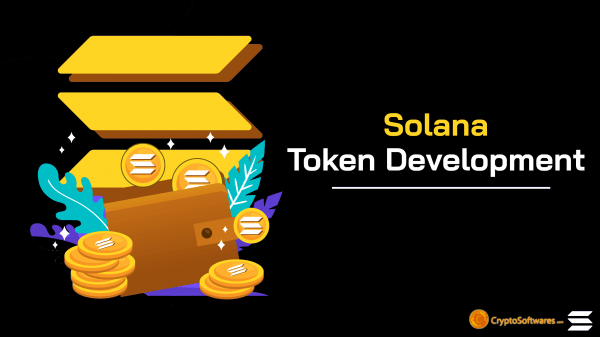
Solana Token Development Services – CryptoSoftwares
SubscribeThe hype surrounding cryptocurrencies is at an all-time high right now. Many new and promising cryptos are entering the market every day. Solana is one of the relatively new cryptocurrencies with huge potential. It is a blockchain network centered on swift transactions and high throughput. Solana aims to provide developers a platform to build DApps and then grow quickly without any of the congestion and scalability issues that plague many other networks. They claim that the network can handle 50,000 transactions per second and Block Times of 400ms. So what exactly is Solana? What sets it apart from all the other blockchain networks available today? What is the SOL token? Let’s have a look.
What is Solana?
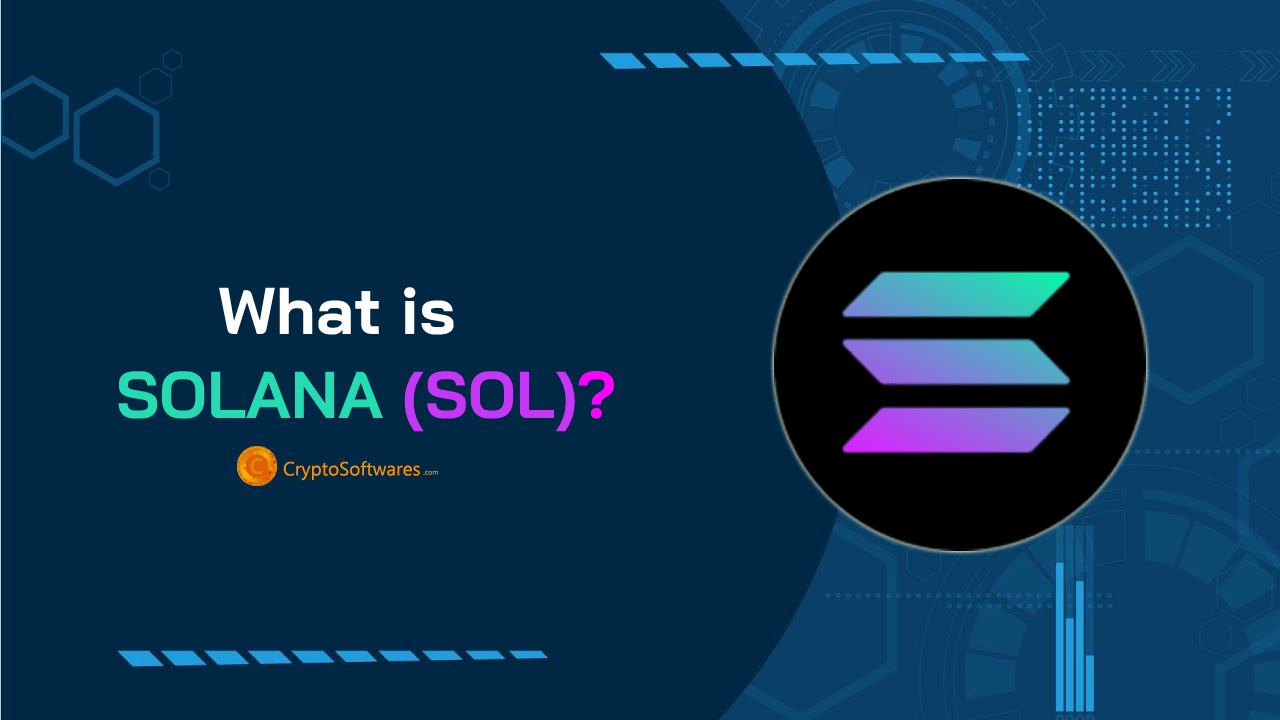
Scalability is a big challenge for blockchain technology. As more and more people start using the network, limitations in transaction speed and confirmation times may arise. Popular blockchains like Bitcoin and Ethereum suffer due to this. Anatoly Yakovenko founded Solana in 2017 aiming to challenge these limitations without compromising security or decentralization of the network.
Solana’s answer to scalability issues is its verification system. It uses a variation of the proof of stake method that demands miners to hold quantities of SOL token to verify transactions and add fresh blocks to the blockchain. The verification system proof of work used in Bitcoin, Ethereum, etc… requires high energy consumption and enormous computing power. While proof of stake is more energy-efficient, the time taken to authenticate transactions can limit efficiency and lead to overcrowding and slowness over the network. Solana uses proof of history to nullify these problems.
The proof of history system timestamps all transactions on the blockchain before validation using proof of stake. This effectively creates a factual record of events on the network and verifies the sequence in which its transactions happened before they are added to the chain. This enables the nodes on the Solana network to create blocks without requiring coordination with the whole network and decreases the time consumed for this process. Solana claims to be the quickest blockchain in the world. It processes around 50,000 transactions per second, adding fresh blocks at a time of 2.34 seconds.
Read More on Ethereum Vs Cardano Vs Solana – A Comparison
Apart from its proof of history system, Solana has introduced a variety of core innovations to streamline the speed and scalability of the network. Let’s have a look at these innovations.
Tower BFT
Tower BFT is a consensus algorithm used to reap the benefits of the synchronized clock. It uses the proof of history as its cryptographic clock which enables a consensus to be achieved without having to sustain heavy messaging overhead and transaction delay.
Turbine
Turbine is a block propagation protocol that makes it simpler to transfer data to the blockchain nodes. It does this by splitting the data into smaller packets. This enables Solana to solve problems of bandwidth and also improves its overall ability to complete transactions quicker.
Read More on How to invest in cryptocurrency? Guide for beginners
Gulf Stream
The Gulf Stream protocol performs an important part in pushing transaction caching and sending it to the edge of the network. This enables the validators to perform transactions before schedule, lessening confirmation time, more agile leader switching, and decreased memory pressure on validators from unconfirmed transaction pools. The Gulf Stream protocol is what allows Solana to support 50,000 transactions per second.
Sealevel
This is a transaction processing engine used for scaling horizontally over SSDsand GPUs. Using this system, Solana can achieve a runtime of more efficiency. It also enables transactions to run parallelly on the same state blockchains.
Pipeline
Pipelining is a Transaction Processing Unit for validation optimization. Here, a stream of input data is assigned to the various hardware responsible for it. This process enables transaction data to be swiftly validated and replicated on every node in the network.
Cloudbreak
Cloudbreak is used to achieve the necessary stability requirements on the Solana network. It is a data structure ideal for simultaneous reads and writes over the network.
Archivers
Archivers are used for data storage. The data on Solana proceeds from validators to a system of nodes known as Archivers. These nodes could be lightweight like laptops and they will be subjected to regular checks to make sure that they are storing the right data.
SOL Token – The Native Token Of Solana Blockchain
SOL is the native cryptocurrency of Solana. It works as a utility token. Users need to pay SOL as transaction fees while conducting transactions or dealing with smart contracts. Because of Solana’s validation system, SOL holders can also become network validators.
Similar to Ethereum, developers can create smart contracts and projects based on the Solana blockchain. As the ERC-20 is to Ethereum, Solana uses the SPL protocol as the token standard of the Solana blockchain. The SOL token can be used for paying transaction fees for using the network or smart contracts and staking tokens for validation.
Develop Your Solana Tokens with Leading Cryptocurrency Development Company Services
Conclusion
Solana provides an alternative to many of the inherent issues with blockchain technology. Speed and scalability are the most appealing qualities of the network. It has the potential to challenge the likes of Bitcoin and Ethereum for blockchain supremacy in the future. Develop your Solana tokens from a leading crypto token development company.
- What is Cryptojacking? Detection and Preventions Techniques
- How to Give Cryptocurrency As a Gift?
- Blockchain Development Life Cycle – Step by Step Guide
- How To Hire A Blockchain Developer For Your Company
- How to Choose the Right Bitcoin Development Company – A Complete Guide
- Common Bitcoin Scams – Beware Of Fraudsters
- How can entrepreneurs leverage blockchain in 2023?
- Role of Blockchain in Cyber Security
- Document and Certificate Verification Through Blockchain Technology
- Initial Coin Offering (ICO): Everything you need to know in 2023
- Categories
- Azure Blockchain Service
- Bitcoin
- Bitcoin Development
- Blockchain Application
- Blockchain Application Development
- blockchain developer
- Blockchain Development
- common bitcoin scams
- Crypto software features
- Crypto softwares
- Cryptocurrency
- Cryptocurrency Development
- Cryptocurrency Exchange Software Development
- Cryptocurrency review
- Cryptocurrency Trading
- Cryptocurrency Wallet Development
- ERC20 Token Development
- Hashing Algorithm
- ICO Development
- ICO Development Service
- ico website development
- Proof of Stake Coins
- Smart Contract Development
- Uncategorized

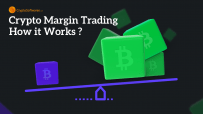
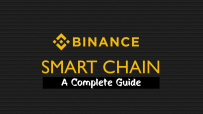

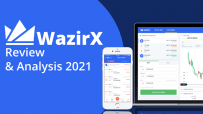
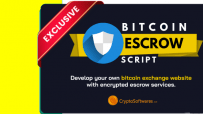
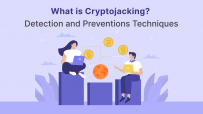

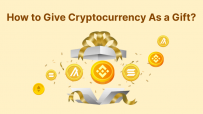
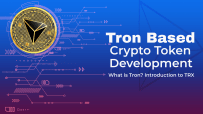
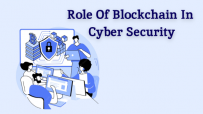
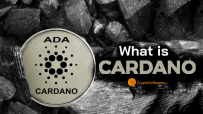
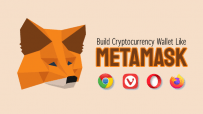
Leave a Reply